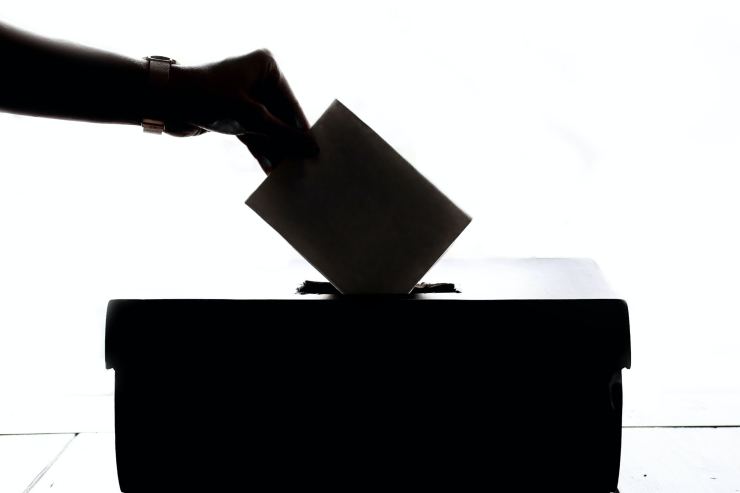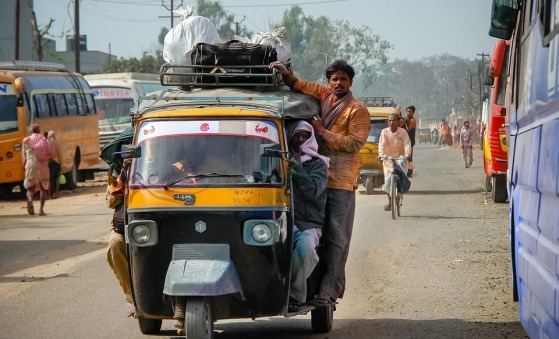
India's Chief Election Commissioner Rajiv Kumar officially kicked off the world's largest democratic exercise on March 16, announcing dates for the country's upcoming general elections that will see nearly 1 billion voters head to the polls.
The gruelling seven-phase election to elect 543 members of the 18th Lok Sabha, India's lower house of parliament, will take place from April 19 to June 1, 2024. Voting for state legislative assemblies in Andhra Pradesh, Odisha, Sikkim and Arunachal Pradesh will also be held simultaneously.
With the announcement, the Model Code of Conduct governing ethical election campaigns has immediately come into force across India until results are declared on June 4.
The marathon election timeline is the second longest in India's history, surpassed only by the country's first general election in 1951-52 which spanned five months. Polling will be staggered across the vast nation of 1.4 billion, with some states like Bihar, West Bengal, and Uttar Pradesh voting in all seven phases.
Laying out the daunting logistical challenge, Kumar said there are nearly 1 billion registered voters this year, including over 18 million first-time electors and an unprecedented 21 million centenarians. Special provisions will allow 85 million voters over age 85 and 88 million with disabilities to cast ballots from home.
The announcement sets the stage for a hard-fought battle between Prime Minister Narendra Modi's ruling Bharatiya Janata Party (BJP) and the newly formed opposition INDIA bloc, led by the Indian National Congress party.
Most pre-election opinion polls project Modi's Hindu nationalist BJP, buoyed by a recent surge after the inauguration of a major Hindu temple, is likely to secure a third straight term and eclipse the 272 seats needed for a parliamentary majority. The BJP won 303 seats in 2019 compared to just 52 for Congress.
However, opposition leaders have vowed an intense campaign to overcome what they call Modi's "dictatorship" and defend India's secular, democratic foundations against Hindu nationalist policies.
“The 2024 Lok Sabha elections will open the 'door of Nyay' for India. This would be perhaps the last chance to save democracy and our Constitution from dictatorship,” said Congress president Mallikarjun Kharge, referring to his party's symbol of an open hand representing justice. “We the people of India will together fight against hatred, loot, unemployment, price rise and atrocities.”
Bahujan Samaj Party chief Mayawati welcomed the poll schedule announcement but said fewer voting phases would have been better logistically. Samajwadi Party leader Akhilesh Yadav declared the election an "agni pariksha" (test by fire) for Indian democracy itself.
Critics argue nearly a decade of BJP rule has been marked by soaring unemployment despite economic growth, increased religious tensions and attacks on minorities, particularly Muslims, and a suppression of dissent and independent media.
Modi supporters praise the 73-year-old leader's economic development agenda and tough stance on national security issues like tensions with Pakistan. The prime minister has campaigned heavily on his Hindu nationalist vision, epitomised by the January inauguration of a grand Hindu temple in Ayodhya that fulfilled a long-held BJP promise.
In his poll announcement, Chief Election Commissioner Kumar appealed for all sides to “maintain decorum when campaigning and refrain from abuses and personal attacks.” He vowed vigorous monitoring of the media for any election violations or misinformation, which he labelled one of the “four Ms” of challenges along with money power, muscle power, and code of conduct breaches.
With the electoral timeline now set, both the BJP and opposition forces have just weeks to roll out their national campaign strategies for what is expected to be an intense, high-stakes political battle whose outcome could reshape India's identity and future path.




